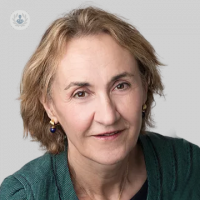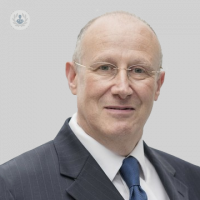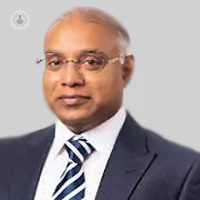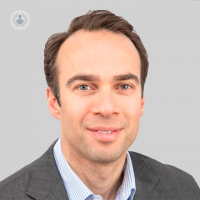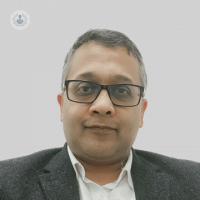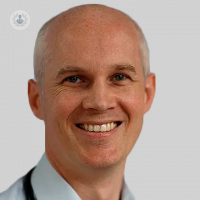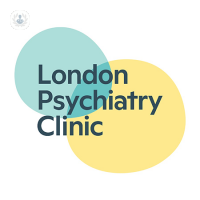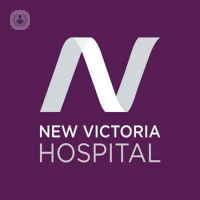What are sleep disorders?
Sleep disorders are problems related to sleep. They are a set of alterations that occur in the different phases of sleep, preventing you from enjoying a proper, continuous and restful sleep. There are many different types of sleep disorders and these can be grouped into four main categories:
- Problems falling asleep and staying asleep
- Problems staying awake
- Problems maintaining a regular sleep schedule
- Unusual behaviour during sleep
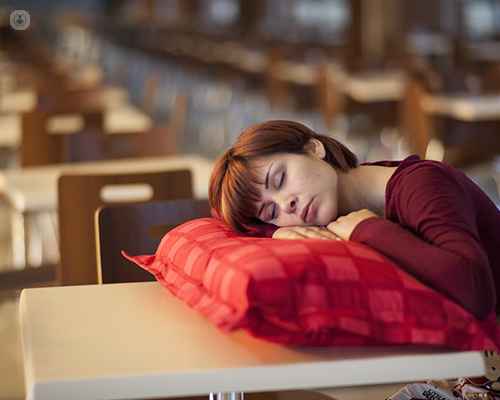
What are the symptoms of sleep disorders?
Some of the general symptoms of sleep disorders are:
- Physical exhaustion
- Low performance
- Daytime sleepiness
- Difficulty complying with professional, family or social obligations
On the other hand, there are specific symptoms that can occur, depending on the type of sleep disorder. Some are:
- Sleepwalking - a state in which the person gets up and acts semi-consciously during sleep, without realising what they are doing, or remembering what they did whilst sleepwalking.
- Night terrors - episodes of agitation due to fear that can be accompanied with sleepwalking.
- Nightmares – unpleasant and frightening dreams that provoke a sudden awakening, both in children and adults.
- Snoring
Common sleep disorders include:
- Insomnia (difficulty falling asleep and staying asleep)
- Narcolepsy (a neurological disorder that affects the control of sleep and wakefulness)
- Sleep apnoea (disruptions and pauses in breathing during sleep)
- Restless legs syndrome (unpleasant sensations in the legs, with an uncontrollable urge to move them)
- Hypersomnia (excessive daytime sleepiness)
- Parasomnias (sleep disorders that cause arousals from REM sleep, e.g. nightmares and sleepwalking)
What causes sleep disorders?
The causes of sleep disorders vary and can be due to several causes, such as:
- Allergies and breathing problems
- Chronic pain
- Stress
- Anxiety and other psychiatric disorders
- Nocturia (the frequent urge to urinate)
- Underlying health conditions
- Environmental factors (e.g. light, noise or extreme temperatures)
- Night shift work
- Medications
- Ageing (older age is associated with the development of certain sleep disorders)
What is the treatment for sleep disorders?
The treatment for sleep disorders depends on the type of disorder the patient has. In general, specialists recommend avoiding taking medications that may cause insomnia or avoid consuming caffeine, sugary drinks, alcohol and tobacco. Also, it is advisable to shorten the time you are in bed to only when you go to sleep. That is, it is important not to watch television, read, or eat whilst in bed.
Depending on your sleep disorder, a specialist may require you to enter a sleep lab to analyse your patterns of sleep. In a sleep lab, you are connected to monitors that track the heart, brain and breathing whilst you sleep.
Here are some specific treatments for common sleep disorders:
- Insomnia – improving ‘sleep hygiene’, such as avoiding caffeine, exercising regularly, keeping your bedroom dark and quiet.
- Snoring – sleeping on your side, quitting smoking, treating any underlying allergies.
- Sleep apnoea – you may require a CPAP machine whilst you sleep, which keeps your airways open.
- Narcolepsy – having scheduled naps and medication to keep you awake during the day.
Sleep disorders
Dr Ana de Ramon - Pulmonology & respiratory medicine
Created on: 11-13-2012
Updated on: 01-12-2024
Edited by: Karolyn Judge
What are sleep disorders?
Sleep disorders are problems related to sleep. They are a set of alterations that occur in the different phases of sleep, preventing you from enjoying a proper, continuous and restful sleep. There are many different types of sleep disorders and these can be grouped into four main categories:
- Problems falling asleep and staying asleep
- Problems staying awake
- Problems maintaining a regular sleep schedule
- Unusual behaviour during sleep

What are the symptoms of sleep disorders?
Some of the general symptoms of sleep disorders are:
- Physical exhaustion
- Low performance
- Daytime sleepiness
- Difficulty complying with professional, family or social obligations
On the other hand, there are specific symptoms that can occur, depending on the type of sleep disorder. Some are:
- Sleepwalking - a state in which the person gets up and acts semi-consciously during sleep, without realising what they are doing, or remembering what they did whilst sleepwalking.
- Night terrors - episodes of agitation due to fear that can be accompanied with sleepwalking.
- Nightmares – unpleasant and frightening dreams that provoke a sudden awakening, both in children and adults.
- Snoring
Common sleep disorders include:
- Insomnia (difficulty falling asleep and staying asleep)
- Narcolepsy (a neurological disorder that affects the control of sleep and wakefulness)
- Sleep apnoea (disruptions and pauses in breathing during sleep)
- Restless legs syndrome (unpleasant sensations in the legs, with an uncontrollable urge to move them)
- Hypersomnia (excessive daytime sleepiness)
- Parasomnias (sleep disorders that cause arousals from REM sleep, e.g. nightmares and sleepwalking)
What causes sleep disorders?
The causes of sleep disorders vary and can be due to several causes, such as:
- Allergies and breathing problems
- Chronic pain
- Stress
- Anxiety and other psychiatric disorders
- Nocturia (the frequent urge to urinate)
- Underlying health conditions
- Environmental factors (e.g. light, noise or extreme temperatures)
- Night shift work
- Medications
- Ageing (older age is associated with the development of certain sleep disorders)
What is the treatment for sleep disorders?
The treatment for sleep disorders depends on the type of disorder the patient has. In general, specialists recommend avoiding taking medications that may cause insomnia or avoid consuming caffeine, sugary drinks, alcohol and tobacco. Also, it is advisable to shorten the time you are in bed to only when you go to sleep. That is, it is important not to watch television, read, or eat whilst in bed.
Depending on your sleep disorder, a specialist may require you to enter a sleep lab to analyse your patterns of sleep. In a sleep lab, you are connected to monitors that track the heart, brain and breathing whilst you sleep.
Here are some specific treatments for common sleep disorders:
- Insomnia – improving ‘sleep hygiene’, such as avoiding caffeine, exercising regularly, keeping your bedroom dark and quiet.
- Snoring – sleeping on your side, quitting smoking, treating any underlying allergies.
- Sleep apnoea – you may require a CPAP machine whilst you sleep, which keeps your airways open.
- Narcolepsy – having scheduled naps and medication to keep you awake during the day.
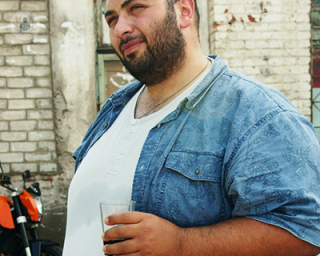

The relationship between obstructive sleep apnoea and obesity
By Dr Muhammed Raashed
2024-11-08
Between 10-20% of all obese people suffer from obstructive sleep apnoea (OSA) and since 30% of the adult population in the UK is now obese, the prevalence of OSA is fairly high. Top consultant respiratory physician, Dr Muhammed Raashed explains the relationship between OSA and obesity, the health risks this condition carries and the type of treatment that is available so you can have a better night's sleep. See more
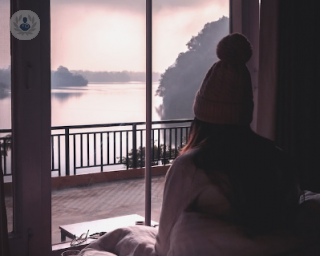

Insomnia: Expert insight on managing sleep difficulties
By Dr Dipesh Mistry
2024-11-08
If you're facing chronic insomnia, it's crucial to consult a specialised sleep physician for advice. We invited highly respected consultant sleep specialist and psychiatrist Dr Dipesh Mistry to share his expert insight into how insomnia is assessed and managed in order to restore a healthy sleep routine. See more
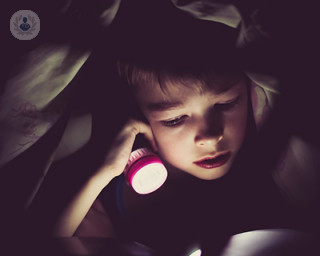

Helping your child overcome sleep difficulties
By Dr Chinwe Ude
2024-11-07
Sleep problems in children can have a significant impact on their wellbeing and as such are naturally a cause of concern for parents. We invited consultant physician Dr Chinwe Ude to share her expert insight on overcoming your child’s sleep difficulties and the importance of seeking help to resolve these issues. See more
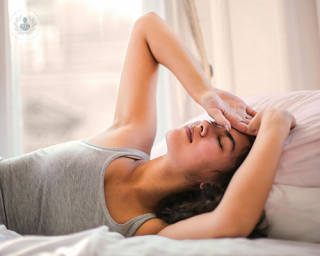

Not-so-sweet dreams: all about sleep disorders
By Professor Carlos Rivas Echeverría
2024-11-07
If a bad night’s sleep can ruin your day, the impact of months of unrestful rest can be more than disruptive to your days – it will harm your mental and physical health. A healthy adult needs between seven and nine hours of sleep a night. For those with consistent issues with sleep, they may be suffering from a form of sleep disorder. There are several types of sleep disorders, and they are caused by a variety of conditions and situations. See more
Experts in Sleep disorders
-
Dr Mark Rosenthal
Paediatric respiratory medicineExpert in:
- Bronchiolitis
- Sleep disorders
- Asthma in children
- Pneumonia in children
- Chronic cough
- Chest infection
-
Dr Enson Thomas
Pulmonology & respiratory medicineExpert in:
- Cough
- Sleep disorders
- Lung cancer
- Asthma
- Bronchoscopy
- Endobronchial ultrasound
-
Dr Farid Bazari
Pulmonology & respiratory medicineExpert in:
- Cough
- Asthma
- Lung cancer
- Shortness of breath
- Sleep disorders
- Respiratory diseases
-
Professor Indranil Chakravorty
Pulmonology & respiratory medicineExpert in:
- Asthma
- Chronic obstructive pulmonary disease (COPD)
- Sleep disorders
- Bronchiectasis
- Cough
- Respiratory infection
-
Dr Timothy Chapman
Pulmonology & respiratory medicineExpert in:
- Cough
- Asthma
- Shortness of breath
- Lung cancer
- Sleep disorders
- Respiratory diseases
- See all

The Shelburne Hospital - part of Circle Health Group
The Shelburne Hospital - part of Circle Health Group
Queen Alexandra Rd, High Wycombe HP11 2TR
No existe teléfono en el centro.
By using the telephone number provided by TOP DOCTORS, you automatically agree to let us use your phone number for statistical and commercial purposes. For further information, read our Privacy Policy
Top Doctors

London Psychiatry Clinic
London Psychiatry Clinic
55 Harley Street London W1G 8QR
No existe teléfono en el centro.
By using the telephone number provided by TOP DOCTORS, you automatically agree to let us use your phone number for statistical and commercial purposes. For further information, read our Privacy Policy
Top Doctors

New Victoria Hospital
New Victoria Hospital
184 Coombe Lane West, Kingston upon Thames, KT2 7EG
No existe teléfono en el centro.
By using the telephone number provided by TOP DOCTORS, you automatically agree to let us use your phone number for statistical and commercial purposes. For further information, read our Privacy Policy
Top Doctors
-
The Shelburne Hospital - part of Circle Health Group
Queen Alexandra Rd, High Wycombe HP11 2TR, High WycombeExpert in:
- Abdominal ultrasound
- Allergies Ophthalmological
- Clinical analysis
- Hip
- Cataracts
- Full Body Check
-
London Psychiatry Clinic
55 Harley Street London W1G 8QR, W1G Marylebone LondonExpert in:
- Anxiety
- Autism
- Depression
- ADHD
- Obsessive compulsive disorder (OCD)
- Trauma
-
New Victoria Hospital
184 Coombe Lane West, Kingston upon Thames, KT2 7EG, South LondonExpert in:
- Cardiology
- General Surgery
- Orthopaedic surgery
- Breast augmentation
- Pain management
- Spine
- See all
- Most viewed diseases, medical tests, and treatments
- Nutrition
- Minimal access surgery (keyhole surgery)
- Head and neck cancer
- Neck lump
- Maternal mental health
- Seizures
- Parkinson's disease
- Expert witness
- Anxiety
- Long Covid
